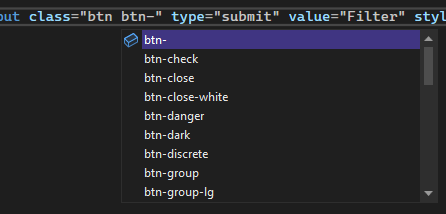What has eBay done with all the money they made off of their Skype sale? Well, some of it has been ploughed into buying the rest of L.A.-based Magento, an e-commerce platform offering open-source software that helps merchants create easily customized online sales platforms.
This move appears to be part of eBay’s larger strategy to own the value chain in commerce. Magento provides them with the point-of-sale suite it was missing to complement its payment gateway services, mobile shopping and digital e-commerce marketing. As a company, eBay is evolving and they are building — according to the Magento blog — a “global, open commerce platform that leverages the worldwide developer community,” with Magento at the core of this new platform.
Already, eBay is suggesting they plan to support the existing open source efforts of Magento that will expand on its existing community base, but my guess is what they’re saying is hype, unless they plan on significant upgrades to the community edition of Magento.
Currently, Community is the most basic of Magento’s three product levels, which escalate in quality and support to Professional and then Enterprise levels.
The community edition is free and supposedly supported by a large amount of open source developers, while the Enterprise edition comes with licensing fees that start around $10k per year. But despite what eBay might say they’re aiming for, the community edition simply does not suit the needs of a larger e-commerce organization and is certainly not easily scalable; it leaves the Community level looking like a classic bait and switch.
I call it a bait and switch because, while the community edition does offer fairly effective out of the box solutions, it just isn’t right for businesses that plan on expansion and do not have a robust development team. What business doesn’t plan on growing? These businesses ultimately require the Enterprise level offering.
Moreover, Magento in general has been plagued with complaints about support. Even after purchasing the professional or Enterprise version, it’s joked that now you have bad support and a number to call.
And while Magento prides itself on its open source community, the reality is that it is not at the scale of something like Drupal/Ubercart. That’s why the Community edition suggests the bait and switch situation. It is fairly effective for a free product, but it isn’t really extensible like a truly open source platform without significant development efforts. Worse, if you want to upgrade to the enterprise version later — believe it or not, you can’t! You have to rebuild the whole site over.
The reality is that there is not a huge (evident) upside for eBay to promote the open source aspect. The only way eBay makes money this way is by convincing a significant number of small businesses to use the Community version and then springboard into engagement with eBay services that do make money, like Paypal.
Unless they have a clever business plan on how to make money through the open source development of their own platform, promoting the open source qualities becomes little more than a marketing technique for them — resulting in potentially an even worse bait and switch, or, if the open source project succeeds, a drastic loss of enterprise sales.
Overall though, Magento Enterprise — which if you are going to use Magento is all I would recommend — is a fantastic product, and, with eBay’s acquisition, will likely transform into a very solid enterprise e-commerce system, one that actually has the customer service that $10k/year warrants.
It will likely become part of a host of products that are seamlessly integrated. This, in turn, will provide great value to Magento customers, as end-to-end integration is difficult to accomplish.



